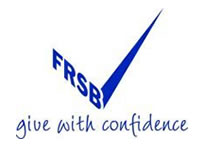Donors trust charities, non-donors far less, says FRSB research
People who give to charity are much more likely to trust charities than those who do not give. This was confirmed by research commissioned by the Fundraising Standards Board (FRSB).
Trust and charitable giving
The survey by TSN of 1,062 people in the UK found that 78% of donors agree with the statement that ‘giving to charity is the best way of supporting good causes’. In addition, when asked if they agreed with the statement ‘I trust charities’, only one third of non-donors agreed and just 26% agreed that ‘charities use donations wisely’.
The clear link between trust and charitable giving was also reflected in a geographical breakdown of the results. Trust is significantly higher in Scotland, where giving is more prevalent, than in Wales where giving is comparatively less prevalent.
Trust in charities is high
The large majority (84%) of donors are confident that the charities they support make a difference; 82% say that they trust the charities they give to. Eighty per cent believe that charities value their donations.
Advertisement
Acceptance of need to invest in fundraising
The research found that there was widespread public recognition of the need for charities to invest in fundraising. Seven in ten donors and half of non-donors (49%) agreed that charities had to do this to secure the future of the services they provide.
Just over half (54%) of donors agreed that charities use the most effective means of fundraising compared to 31% of non-donors.
However, both donors and non-donors are not confident that charities are effective in their expenditure. Only 19% of non-donors agreed with the statement that charities do not spend too much money on fundraising and administration.
The survey
The study was conducted in Great Britain via TNS OnLineBus, an Internet omnibus survey. A sample of 1,062 GB adults aged 16-64 were interviewed. Interviewing was conducted by CAWI over the Internet from 23 – 27 February 2012. The sample has been weighted to represent the adult population of Great Britain aged 16-64.
www.frsb.org.uk




